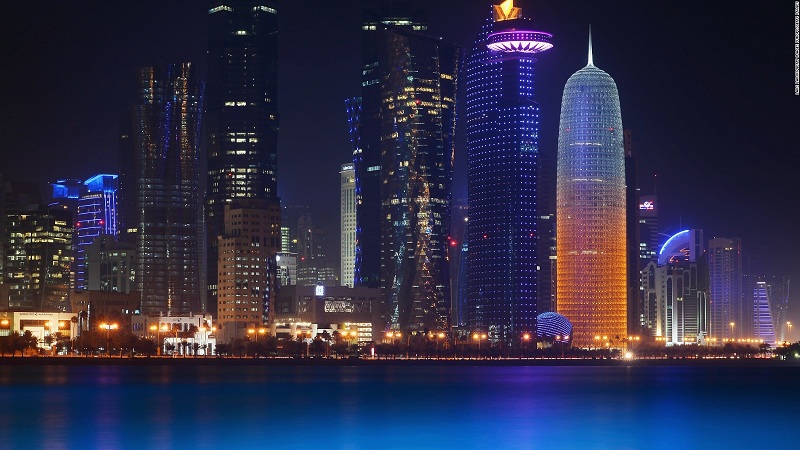Alwaght- The economic and financial impact of a nine-month Saudi-led blockade on Qatar is fading as the Persian Gulf Arab nation's economy continues to adjust successfully to lower hydrocarbon prices, International Monetary Fund noted but warned that some risks remain for Doha.
The IMF noted that the availability of fiscal buffers has allowed a gradual fiscal consolidation anchored mainly on reducing current expenditures, with the merger of ministries and cuts in subsidies. Tariffs of some utilities (water and electricity) have been increased and domestic fuel prices are now adjusted regularly in line with movements in international prices. An infrastructure program in the amount of $200bn, equivalent to 121 percent of Qatar’s 2017 GDP, is under way to diversify the economy and prepare for the FIFA 2022 World Cup.
The IMF Mission noted that the direct economic and financial impact of the Saudi-led blockade on Qatar is fading. While economic activity was affected, this has been mostly transitory and new trade routes were quickly established. The banking system has also adjusted.
Although Qatar's economy and banking and financial systems remain sound, there are still some risks, the IMF said.
"The main risks relate to the possibility of lower hydrocarbon prices, the implementation of planned fiscal measures and uncertainty associated with the lingering impact of the diplomatic rift."
The dispute in the Persian Gulf began in June 2017, when Saudi Arabia, the United Arab Emirates, Egypt and Bahrain cut diplomatic relations with Qatar and imposed a land, sea and air blockade, after accusing Doha of supporting "terrorism". Qatar continues to vehemently reject the allegations as "baseless".
On June 22, the block, Saudi Arabia, the UAE, Bahrain, Egypt, issued a 13-point list of demands, including the shutdown of Al Jazeera TV, limiting ties with Iran, and expelling Turkish troops stationed in the country as a prerequisite to lifting the blockade.
Qatar rejected all the demands, denouncing them as attempts to violate its sovereignty.
Doha has been able to withstand the Saudi-led blockade due to brotherly with neighboring Iran and Turkey.
Turkey, Iran and Qatar on Sunday signed a transportation pact for boosting trade among the three countries.
In November last year, Turkey’s Economy Minister Nihat Zeybekci and his Qatari counterpart Ahmed bin Jassim bin Mohammed Al Thani visited the Iranian capital Tehran where they signed an agreement with Iran’s Minister of Industries, Mining and Trade Mohammad Shariatmadari.
Under the agreement, Iran accepted to be the transit country between Turkey and Qatar. The deal is expected to help accelerate commodity delivery and facilitate trilateral trade.



























